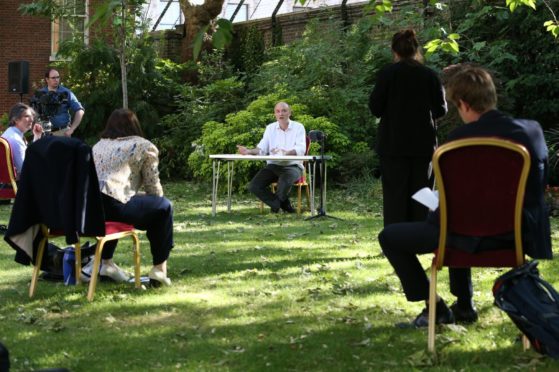There is a Fleet Street memoir by an author who is a little neglected these days.
The late Michael Green was a journalist who was once quite well known for “The Art of Coarse” series of books. They celebrate incompetence by poking fun at the attempts of the inadequate to take part in “serious” activities.
Similarly, “The Art of Coarse Acting”, is a far cry from London’s West End. It is a memorable depiction of the sub-culture of amateur dramatics, where the coarse actor contends with collapsing scenery and is pretty good at remembering the lines so long as they aren’t his own.
Green also wrote a lesser known autobiography of his journalistic life, called “Nobody Hurt in Small Earthquake”. The title derives from a competition by sub-editors on The Times to find the dullest headline ever written.
In it, Green recalls one of the more congenial jobs which he had during the 1950s. It was in the features department of “The Star” – not the tabloid of today but rather one of the London evening papers which was a stablemate of the also defunct News Chronicle.
He edited a feature named “Bright Ideas”, in which readers were encouraged to write in with their best “hints and wheezes”. If a letter was printed, the reader received a guinea. The writer of the letter judged the best of the day received five guineas. Whoever came up with the best letter of the week got 50 guineas. The intention was that readers came up with imaginative solutions for commonplace problems.
For example, a milkman got a prize for informing readers that rubbing the hands in spilt milk prevented chapping and chilblains during the winter. Green tried the advice and it worked.
Nail varnish was recommended as an effective way of stopping tights from laddering. A prize was given to the reader who suggested condensed milk could fix a broken tile. This, however, started a trend. Condensed milk began to be suggested as an answer for all sorts of other household tasks. Green stopped dishing out the prizes on the grounds that condensed milk was “scarcely a powerful adhesive”.
Dubious entries were checked with experts, but as Green remarked some spurious ones managed to slip through the net.
“A suggestion that the taste of custard can be improved by adding an ivy leaf to the mixture brought an urgent letter from a doctor saying the taste was indeed improved but only because ivy contained arsenic,” Green remembered.
Other suggestions were recognised as dangerous and were rejected for publication. Green remembered a night-shift worker came up with a coffin-shaped invention which acted as a sound- proof cover on his bed to help him sleep during the day.
The reader asserted that it made him sleep “as sound as a babe”. Green added the reader’s claim “might have been correct as the device would undoubtedly have suffocated him”.
Features in the “Bright Ideas” genre were once a staple of a “handy hints” style of journalism. So much so that they have been entertainingly parodied in the “Top-Tips” column in Viz, the vulgar magazine which satirises magazines and comics.
Among Viz’s “Top-Tips” are such gems as: “Before attempting to remove stubborn stains from a garment, circle the soiled area with a permanent pen so that when you remove it from the washing machine you can check the stain has gone.”
“Top-Tips” sprang to mind during Dominic Cummings’s excruciating press conference the other day. His explanation for his car journey to Barnard Castle could have walked out of the pages of Viz.
“Worried about your dodgy vision after an attack of suspected coronavirus? Test your eyes by getting behind the wheel of your car and taking your wife and young child for a 30-mile drive.”
Perhaps Cummings would think it a good idea to check his sense of smell by breaking into the big cats’ cage at a zoo to sniff the behind of a man-eating lion. While there, he could race a cheetah – to test his legs.
His explanation for his now infamous drive to Barnard Castle may or may not prove the most damaging aspect of his 260-mile bolt from London to Durham during the lockdown. But it would certainly be the most laughable, if things weren’t quite so serious.
As so many people have remarked, Boris Johnson’s failure to draw a swift line under the controversy and anger raging over his key adviser’s behaviour proved a hugely damaging distraction at a time when the public was seeking clarity on the most challenging health crisis of living memory.
If Michael Green were still around, events of the last few days would have provided some brilliant material for “The Art of Coarse Politics”.
